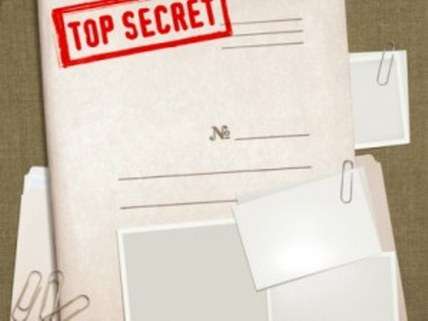Intrusive National Security Letters Get Appeals Court Scrutiny

Last year, U.S. District Judge Susan Illston ruled that national security letters—sort of like subpoenas, but more secret police-y—are unconstitutional. She then promptly ordered Google to obey one anyway, so don't look for consistency from the bench. Now the U.S. Court of Appeals for the 9th Circuit will have its own say on the controversial investigative tools which have been a particular favorite of the FBI.
As Dustin Volz puts it for National Journal:
The case, to be brought before a panel of the U.S. Court of Appeals for the 9th Circuit on Wednesday, could have sweeping digital-privacy implications, and it represents one of the most direct challenges to the legal authority for government spying in the post-Snowden era. Many observers expect the case to ultimately reach the Supreme Court.
At issue is whether the FBI can use so-called national security letters, or NSLs, to compel companies to hand over communications data or financial records of certain users for the purposes of a national security investigation. These letters permit the FBI to collect telephone and Internet data of suspects without court approval and they often place a gag order on companies, which prevents them from disclosing the government order.
The appeals court case is a follow-up to Judge Illston's ruling on the constitutionality of NSLs. It was brought by a telecommunications company—widely believed to be Credo—in a challenge to the wide-ranging data-hoovering NSLs represent, as well as the gag orders that accompany them and prevent recipients from even complaining about government incursions.
The gag orders can act as built-in coverups of misuse, and the Electronic Frontier Foundation has documented abuses of the power they represent, including an NSL issued to North Carolina State University at Raleigh in search of documents the FBI had already acquired. The university resisted, which the feds then used as the basis for an argument that they need more power.
How often the government misuses NSLs is unclear because of the gag orders that prevent people from complaining. That's exactly the point raised in a friend of the court brief filed by Reps. Zoe Lofgren (D-Calif.), Thomas Massie (R-Ky.), Jared Polis (D-Col.), and Anna Eshoo (D-Calif.).
NSLs are profoundly problematic because the FBI has extraordinary discretion to issue these demands unilaterally and shroud them in secrecy. Indeed, the Department of Justice Inspector General has documented widespread misuse of this investigative tool. Because Congress must depend on information reported by the FBI to conduct oversight, and NSL recipients are barred from disclosing even the most basic information about these demands, it is exceedingly difficult to evaluate the Bureau's use of this controversial power
Government-imposed secrecy spurred Twitter to file its own lawsuit yesterday, seeking legal authorization to reveal to the public just how snoopy officialdom is being.
"The Constitution doesn't permit the government to impose so broad a prohibition on the publication of truthful speech about government conduct. We hope that other technology companies will now follow Twitter's lead," Jameel Jaffer of the ACLU said in response.
And we hope that the U.S. Court of Appeals for the 9th Circuit gives the FBI another judicial slap.
Editor's Note: As of February 29, 2024, commenting privileges on reason.com posts are limited to Reason Plus subscribers. Past commenters are grandfathered in for a temporary period. Subscribe here to preserve your ability to comment. Your Reason Plus subscription also gives you an ad-free version of reason.com, along with full access to the digital edition and archives of Reason magazine. We request that comments be civil and on-topic. We do not moderate or assume any responsibility for comments, which are owned by the readers who post them. Comments do not represent the views of reason.com or Reason Foundation. We reserve the right to delete any comment and ban commenters for any reason at any time. Comments may only be edited within 5 minutes of posting. Report abuses.
Please to post comments


This whole post is nothing but false hope. Even should the courts decide in favor of liberty, the Government will just set up something slightly different yet more intrusive.
And people say government is inefficient. Packaging multiple rights violations into a single NSL means less oversight overhead so they can pass the oppression savings on to you.
And we hope that the U.S. Court of Appeals for the 9th Circuit gives the FBI another judicial slap.
And the effect of said "slap"....? Little to naught, I would suspect.
The 9th circuit is the least reliable as it is the most overturned court in the country. If it were a real appeals court, I'd take notice.
We need to amend the Constitution so that a finding that an official or officials have violated the Constitution means exile or something.
Drawing and quartering.
I suppose there could be a sliding scale. Exile for minor violations; drawing and quartering for less minor violations. Major violations are right out.
Well, they're already going to the special Hell, with the child molesters and people who talk at the theater. Isn't that enough?
... Who am I kidding? Of course it isn't!
Half your assets and 10 years in exile or keep all your stuff and never set foot in the US or be employed in any capacity by them again.